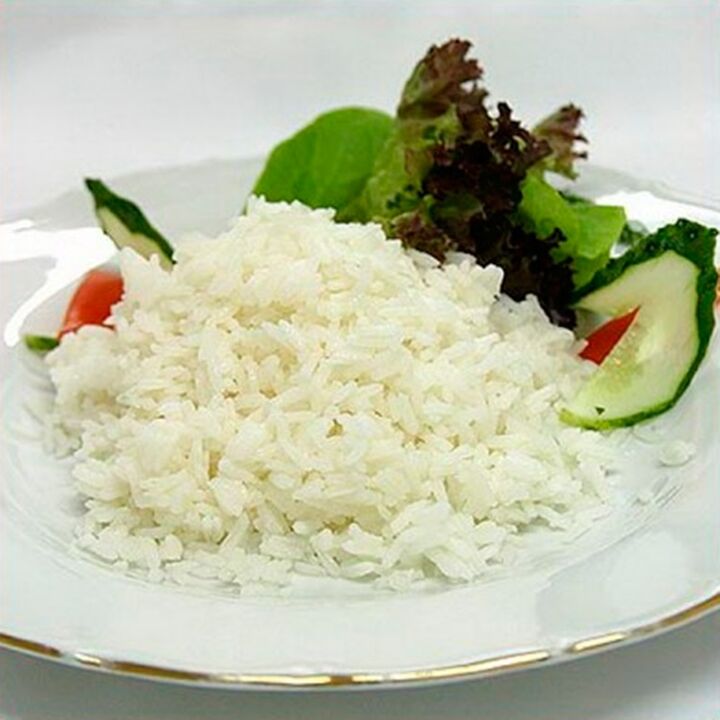
The fourteen-day Japanese diet is very suitable for people who want to lose weight quickly, but the price of this "pleasure" is very high. This diet is rightfully considered one of the strictest and toughest. This means watching it, you will have to forgo your usual diet and exclude most products from your daily diet.
Why does the Japanese diet work? In this case, the diet is designed in a way that allows you to maintain a person's normal physical condition while helping to speed up the metabolic process in his body and convert fat into energy, or in other words, burn it.
By the way, why the diet is specifically called Japanese, no one can answer, since it doesn't involve the rice or seafood that make up the daily diet of the Japanese.
The difference between the 14-day and 7-day Japanese diets seems insignificant at first glance. Both eliminate the use of carbohydrate-rich foods. Fourteen days of weight loss diets work best, however, 14 days is double the difficulty of surviving without your favorite buns and pies. It should be remembered that you can lose weight with the help of any Japanese diet, no more than 1 time per year. Otherwise, you may cause your health to deteriorate.
Japanese slimming products for 14 days
List of forbidden foods on the 14-day Japanese diet:
- any alcoholic beverage;
- salt, sugar, spices, seasonings;
- Bacon, fatty meat, fish;
- marinade;
- black tea, cream;
- Processed cheese, butter;
- any animal fat;
- Baking, pastry, bread (you can use a small amount of cookies several times a week);
- Sweet carbonated drinks.
List of foods allowed in the 14-day Japanese diet:
- black coffee powder;
- Any fruit, vegetable: cabbage, carrots, zucchini, tomatoes, cucumbers, lettuce, parsley;
- egg;
- Vegetable oils (sunflower, mustard, olive oil, etc. );
- Lean meat, fish (boiled or steamed best, changed to sunflower oil once a week);
- fat-free kefir;
- Mineral water, juice, green tea. Drink no less than 2 liters of fluids per day.
Daily replacement of the products indicated in the diet menu is not recommended as there is a reason for this diet. Also, don't interrupt your diet for a day or two.
The Pros and Cons of the Japanese Diet for 14 Days
Pros of the 14-Day Japanese Diet:
- Almost 100% weight loss results (up to 9 kg in 2 weeks);
- not regaining weight in the next few years;
- Complete refusal of food, should not starve;
- Helps to eliminate edema and remove unnecessary harmful substances from the body.
Now is the downside. The 14-day Japanese diet should be followed, which in most cases leads to worsening health. The acceleration of metabolism, low-calorie nutrition, of course, cannot be ignored by the body. Often women try to lose weight this way.
Many people who have experimented with the effects of weight loss methods on themselves admit to experiencing intense hunger on the first day of a diet that doesn't leave even after eating. About half of the women who used the 14-day Japanese diet to lose weight reported sharp deterioration in their health and worsening of some diseases after two weeks of dietary changes. Therefore, before starting to lose weight, it is still recommended to see a doctor for a physical examination. Against the background of nutritional changes of two weeks, gastritis is unlikely, but in order to allow the inflammation of the gastric mucosa to worsen, this time is sufficient.
For people with high blood sugar, thyroid disease, cardiovascular disease, you should not follow the Japanese diet. Some foods prescribed in this diet may also be harmful. For example, those with frequent symptoms of high blood pressure, gastritis or stomach ulcers should not start their day with a cup of strong coffee.
The diet should be abandoned if it is adhered to and accompanied by alarming symptoms: dizziness, fainting, loss of appetite, stomach pain, bowel pain, nausea, stool changes, headache.
Sticking to a certain diet can be very difficult for someone who is away from home most of the time. Agreed, at work, sometimes there isn't even a minute of free time just for a snack, let alone a meal by the hour. So, to lose weight with this diet, it’s best to take vacation time.
In this case, it is much easier for housewives. However, if you don't live alone, you should keep in mind that for 14 days you also have to cook normal food for the family (they won't lose weight! ) or in extreme cases, be present during the food preparation process, which is very difficult. IfYou've decided to lose weight this way, so stock up on patience and willpower.
After the 14-day period, it is important to exit the diet properly. You shouldn't rely on calorie-rich foods right away, you can eat something sweet (a small portion). Improper nutrition, after the diet is completed, some of the excess weight will rebound, and quickly.
If the Japanese diet is too heavy for you, keep in mind that some people voluntarily refuse to eat large amounts of food, only eat vegetables, fruits and grains (vegetarian, raw food, fruitist), feel good, and don't have health problems. If a person prefers to eat only plant-based foods without any discomfort, you can also stick to a low-calorie diet for only 2 weeks.





















